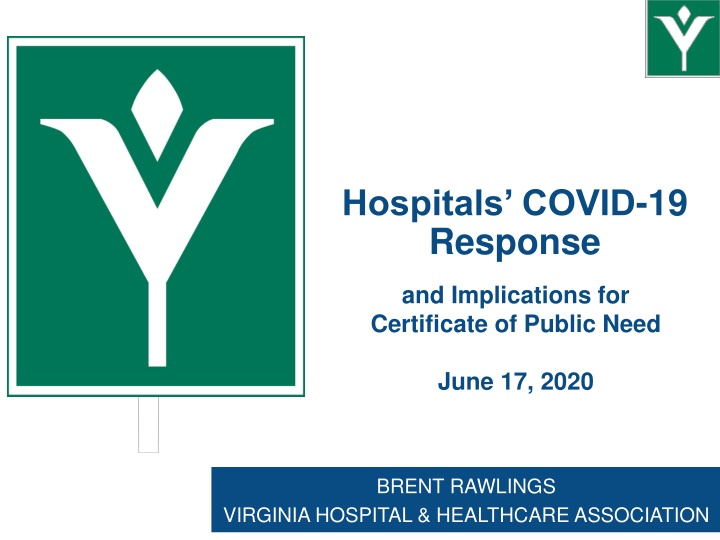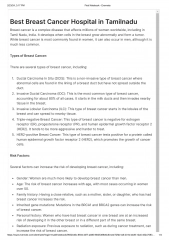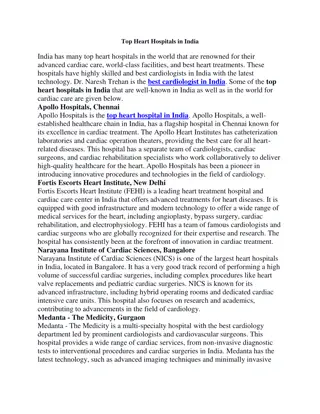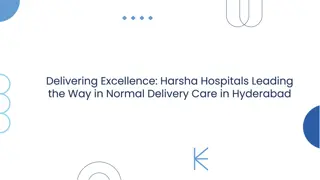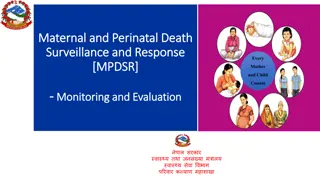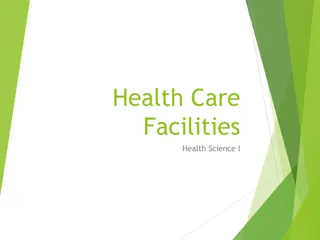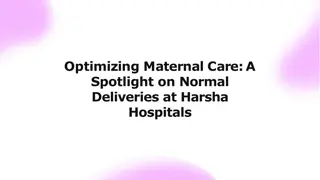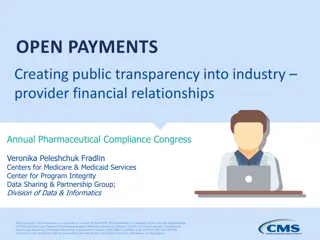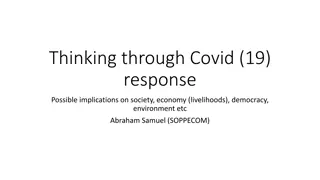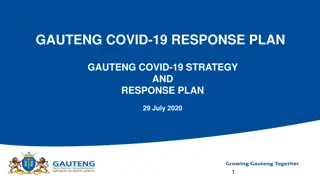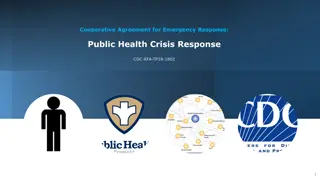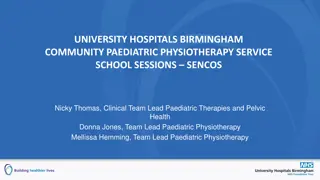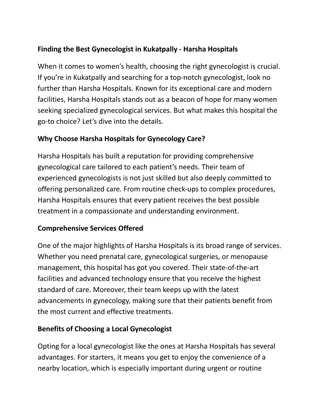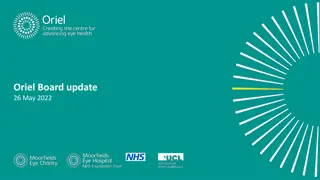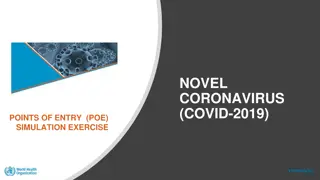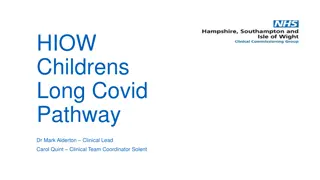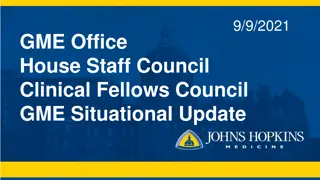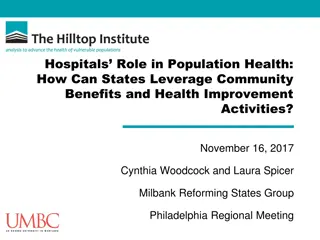Hospitals' Response to COVID-19: Implications for Public Need
Hospitals play a vital role in Virginia's healthcare system, contributing significantly to the state's economy and equity in healthcare access. This article delves into the impact of COVID-19 on hospitals, their economic contributions, and their critical role in ensuring healthcare equity through the Certificate of Public Need (COPN) program. It also highlights the challenges faced by hospitals in Medicaid expansion and their pivotal role in the state's COVID-19 response efforts, including emergency preparedness and patient care.
Download Presentation

Please find below an Image/Link to download the presentation.
The content on the website is provided AS IS for your information and personal use only. It may not be sold, licensed, or shared on other websites without obtaining consent from the author.If you encounter any issues during the download, it is possible that the publisher has removed the file from their server.
You are allowed to download the files provided on this website for personal or commercial use, subject to the condition that they are used lawfully. All files are the property of their respective owners.
The content on the website is provided AS IS for your information and personal use only. It may not be sold, licensed, or shared on other websites without obtaining consent from the author.
E N D
Presentation Transcript
Hospitals COVID-19 Response and Implications for Certificate of Public Need June 17, 2020 BRENT RAWLINGS VIRGINIA HOSPITAL & HEALTHCARE ASSOCIATION
Hospitals are Major Economic Engines TOP EMPLOYER IN LOCALITIES ACROSS THE STATE DIRECTLY PROVIDE 130,000+ JOBS $40 BILLION ECONOMIC CONTRIBUTION TO THE COMMONWEALTH
Hospitals are leaders in healthcare equity. COPN makes it possible. Provide access to care for uninsured and underinsured Virginians Protect availability of essential health services in all regions of the Commonwealth Provide quality of care oversight and accountability Train the future health care workforce Prepare resources for public health emergencies and natural disasters
Community Access to COPN Regulated Care Independent Free-Standing CT, Surgery, and Imaging Centers versus Hospital Owned CT, Surgery, and Imaging Centers In Virginia's Distressed Communities CT Facility Location by Distress Score Outpatient Surgery Locations by Distress Score MRI Facility Location by Distress Score
Medicaid Expansion Private acute care hospitals cover the state share of Medicaid expansion. $105 million is due July 1, 2020. Amount owed by hospitals increasing 46% in 2021 ($419M for year). Medicaid supplemental payments expected to be much lower than projected for the duration of the pandemic, due to patient fear of seeking care.
Hospitals Role in Virginias COVID-19 Response Care Prepare Respond Invest Operate Regional Healthcare Emergency Prepared- ness Coalitions, plus 20 working sub comm- ittees in partnership with VDH Serve as the frontline healthcare providers for COVID-19 medical care (average of 1,300 COVID-19 hospitalized patients per day March thru June) Rapidly expand bed capacity and staffing to prepare for patient surge (added 3,695 beds under EO52 avoiding costly state investment in ACFs) Invest in unpreceden- ted amounts of PPE, ventilators, and supplies and rapidly expand testing capabilities (currently in excess of 2,000 tests per day)
COVID-19 Impact on Hospital Finances: Projected 2020 revenue loss = $3.6 Billion + Patient volumes down 50% Losing $25 million in net revenue per day Two months of non-urgent surgeries Virginians hesitant to seek care = lower ER volume but more urgent care needs $750 million per month Unplanned costs: surge capacity planning, investments in staffing, testing, ventilators, supplies, PPE Increased uncompensated care as more Virginians become unemployed and uninsured COPN deregulation would have a devastating impact on hospitals already on the brink of financial disaster.
The current system has well-documented issues that have been studied extensively. The 2020 General Assembly passed SB 764 to enact much-needed reforms. 2020 COPN Reform Bill SB 764, Barker Consensus product of two different multi-stakeholder work groups spanning two administrations Updates the State Health Services Plan (formerly SMFP) and sets up ongoing task force Removes outmoded and non-contested projects (lithotripsy, MSI, obstetrics, nuclear medicine, stereotactic radiosurgery/therapy) Modernizes the COPN review process
Implementation of 2020 Reforms: Bill effective date July 1, 2020 Develop a plan to reduce the average application review cycle period to not more than 120 days Create an online inventory of capacity authorized by current certificates Establish a public education and outreach program designed to improve public awareness of COPN Form the State Health Services Plan task force to update the SHSP Implement a timely and reliable data analytics system Report due December 1, 2020 By January 1, 2021 By January 1, 2021 By November 1, 2022 By January 1, 2023
